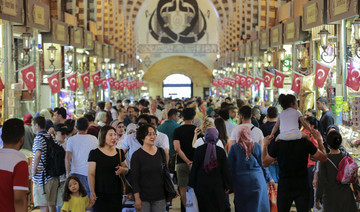ISTANBUL: Turkish inflation surged to nearly 25 percent in September from a year earlier, official data showed on Wednesday, hitting its highest in 15 years and sharpening focus on whether the central bank will be able to deliver another hefty rate hike.
The size of the increase — prices jumped by 6.3 percent from a month earlier — far outpaced expectations and underscored the deep impact of a currency crisis on the economy and consumers.
The lira has lost nearly 40 percent of its value this year against the dollar, hit by concerns about President Tayyip Erdogan’s influence over the central bank and a rift with Washington.
That sell-off has pushed up prices of everything from food to fuel and eroded confidence in what was once a high-flying emerging market.
“The central bank will need to react to this,” said Inan Demir, senior emerging markets economist at Nomura. “This is not something that could be ignored and they will have to hike at their next meeting.”
The lira weakened slightly after the release of the data and was at 6.0500 to the US dollar, about 1 percent weaker on the day, at 0748 GMT. It has been underpinned in recent weeks by the central bank’s massive September rate hike and hopes for an improvement in ties with the United States, particularly over the fate of a jailed American pastor.
Inflation rose to 24.52 percent in September from a year earlier, the data from the Turkish Statistical Institute showed. In August the year-on-year figure was 17.9 percent.
The month-on-month jump of 6.3 percent outstripped the 3.6 percent forecast in a Reuters poll of 15 economists.
The central bank last month raised interest rates by 6.25 percentage points to put a floor under a lira and try to rein in inflation. Erdogan, a self-described “enemy of interest rates,” has repeatedly called for lower rates to keep cheaper credit flowing, particularly to the construction industry.
Following the last rate hike, Erdogan said his patience with interest rates had limits. Such comments have undermined confidence in the central bank’s independence and triggered the currency sell-off in the first place.
Not all economists agreed the central bank would increase rates at its next meeting this month.
“Given the scale of last month’s rate hike and continued pressure from President Erdogan for rates not to be raised further, we think that policy will be left on hold,” said Jason Tuvey of Capital Economics in a note, adding inflation likely had a “bit further” to rise in the coming months.
Food and non-alcoholic drinks prices, key to consumer price inflation, surged 6.4 percent month-on-month. Furnishing and household equipment posted the highest monthly increase at 11.41 percent, followed by transportation at 9.15 percent, the data showed.
Producer prices rose 10.88 percent month-on-month in September for an annual rise of 46.15 percent, the data showed.
Financial markets have long been concerned about Erdogan’s control over monetary policy, which they say has undermined the central bank’s ability to fight inflation.
In a decade and a half in power, Erdogan and his government have built bridges, power plants and hospitals and improved the lives of millions of lower-income, pious Turks.
But economists say the boom years focused more on consumption rather than productivity — that Turkey built shopping malls when it should have been investing more in factories and education.
The lira sell-off has put focus on problems in the real economy and the potential for a crisis at Turkey’s banks.
For years Turkish companies have loaded up on cheap euro and dollar loans. But the lira crisis has driven up the cost of servicing that debt, meaning lenders face a wave of defaults.
“The currency has appreciated and the central bank has hiked rates aggressively, so going forward, toward the end of the year, inflation numbers should stabilize,” said Bernd Berg, a global macro and foreign exchange strategist at Woodman Asset Management in Zurich.
“To me the worst of currency crisis is over and we should see some stabilization.”
Analysts have said that the next important event for the lira will be the trial of the US evangelical Christian Pastor Andrew Brunson.
Brunson is charged with links to Kurdish militants and supporters of Fethullah Gulen, the cleric blamed by Turkey for a failed coup attempt in 2016. He has denied the accusation, as has Gulen, and Washington has demanded his immediate release.
The diplomatic rift — and US President Donald Trump’s doubling of steel tariffs in response to Brunson’s detention — has added to the pain for the lira.
Brunson’s lawyer said he filed an appeal for his client’s release from house arrest on Wednesday.
The pastor is next due in court on Oct. 12.
Turkey inflation surges to nearly 25%, highest in 15 years
Turkey inflation surges to nearly 25%, highest in 15 years
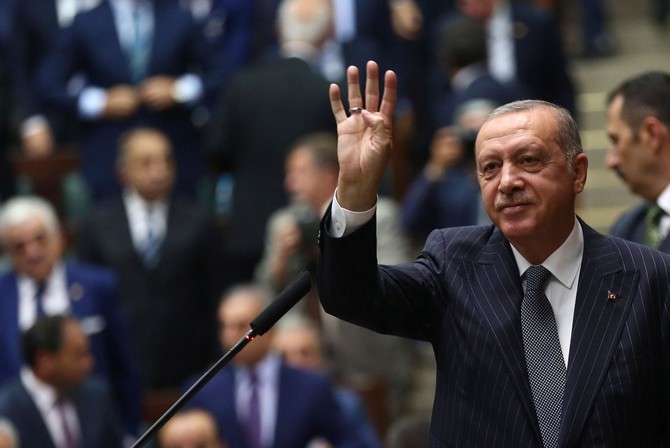
- September inflation shows biggest annual spike in 15 years
- Inflation put focus on next central bank meeting
IMF demands Pakistan secure parliamentary approval on reforms for loan agreement— official
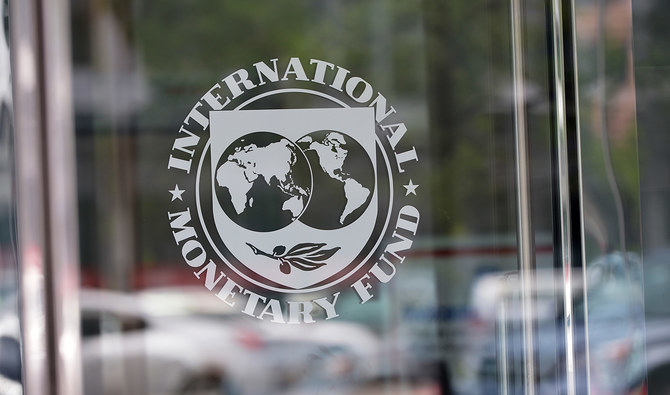
- Government will present “prior actions” needed to secure IMF loan in federal budget next month, says finance ministry official
- Leading economist says Pakistan left with no option but to secure IMF bailout to meet external financing needs of $80 billion
ISLAMABAD: The International Monetary Fund (IMF) has asked Pakistan to seek parliamentary approval on major economic reforms related to the energy, power, tax sectors and on the privatization of state-owned enterprises (SOEs) before starting formal talks for another loan program, a finance ministry official said on Thursday.
Facing low foreign exchange reserves, currency devaluation and high inflation, Pakistan last month completed a short-term $3 billion IMF program that helped stave off a sovereign default. However, the government of Prime Minister Shehbaz Sharif has stressed the need for a fresh, longer-term program with the global lender.
An IMF mission reached Islamabad last week to negotiate with Pakistani authorities for a fresh bailout program, holding talks with officials on reforms in key economic sectors. The mission is wrapping up its visit today, Thursday, without reaching any staff-level agreement with Islamabad.
The government would present the economic reforms demanded by IMF or “prior actions” in parliament in the Finance Bill 2024-25 likely to be presented on June 7, the finance ministry official with knowledge of the negotiations, said on condition of anonymity.
“The IMF has suggested authorities to get parliamentary approval for the new loan program’s targets and conditions before initiation of the formal talks,” the official told Arab News.
“In fact, these are the prior actions that Pakistan is required to take care of before reaching a staff-level agreement with the Fund for the new bailout package.”
The international lender has urged Islamabad to overhaul its SOEs and introduce tax, energy and power reforms. Pakistan has had to take painful measures in line with the IMF’s demands since 2022, which included hiking fuel and food prices.
The finance ministry official said the government intends to introduce key reforms in the energy and power sectors in line with the IMF’s demands, besides broadening the tax base through progressive initiatives.
“The government will take all parliamentary parties into confidence over the digitalization of the Federal Board of Revenue and the privatization of the SOEs,” he added.
Sajid Amin, a senior economist and deputy executive director at the Sustainable Development Policy Institute (SDPI), said the government had “no option but to secure the IMF loan program.” He said the IMF’s program was critical in helping Pakistan meet its external financing needs of around $80 billion in the next three years.
“The IMF wants political ownership of the loan program and that’s why it is pushing the government to get all the targets and conditions approved by the parliament,” Amin told Arab News.
“The biggest challenge for the government is to convince the coalition partners and opposition over its reforms agenda to secure the IMF loan,” he said.
Amin warned the upcoming IMF program would be the “toughest” one for the government as it would not be easy for it to complete it.
Goldman Sachs to establish regional headquarters in Riyadh: report
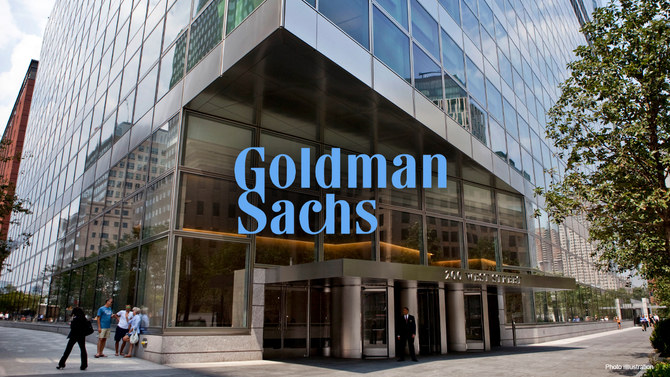
RIYADH: Goldman Sachs Group is set to become the first Wall Street bank to establish its regional headquarters in Saudi Arabia as it has reportedly obtained a license from the Ministry of Investment, reported Bloomberg.
As per the recently approved laws in Saudi Arabia, companies with state contracts must have a regional headquarters in the Kingdom with a minimum of 15 employees.
Arab News contacted the Investment Ministry to get a confirmation of the news but officials declined to comment.
It would be pertinent to mention here that Goldman Sachs currently has offices in Doha, Riyadh and Dubai.
Saudi Arabia has outperformed its target for attracting regional headquarters, with over 180 companies now established in the Kingdom. This number surpassed the initial goal of securing 160 HQs by the end 2023.
Saudi Arabia offers tax incentives for foreign companies that locate their regional headquarters in the Kingdom, including a 30-year exemption for corporate income tax.
The tax incentives include zero income tax for foreign entities that move their regional headquarters in the Kingdom, and these benefits can be availed from the date of the regional headquarters issuance license, according to Ministry of Investment.
Saudi Arabia issues 54 industrial licenses in March

RIYADH: Saudi Arabia maintained the issuance of over 300 industrial licenses in the first quarter of 2024, consistent with the previous year, official data has revealed.
According to a statement released from the Kingdom’s Ministry of Industry and Mineral Resources, as many as 324 industrial permits were issued in the first three months of the year, with 54 approvals issued in March alone.
The report further showed that the volume of investments in March amounted to SR1.047 billion ($279 million).
This falls in line with the Saudi Arabia’s ambition to transform mining into a foundational industrial pillar of the country’s economy.
It also aligns with the ministry’s goal to strengthen the sector as well as contribute to the ongoing developments in accordance with Vision 2030.
Moreover, the report, which was issued by the ministry’s National Industrial and Mining Information Center, disclosed that the permits in March were distributed across several sectors, including the manufacturing of non-metallic mineral and food products and formed metal goods as well as chemicals and paper and its products.
According to the analysis, the new industrial licenses were distributed among multiple regions, including the Eastern Province, Riyadh and Makkah, as well as Qassim, Jazan, Madinah, Al-Jouf, and Al-Baha.
The distribution of new permits shows that small enterprises comprised 77.78 percent, with medium-sized companies following at 22.22 percent.
In terms of the type of investments, national factories accounted for the largest percentage of the total licenses, with 98.15 percent, followed by foreign establishments with 1.85 percent.
Furthermore, the study also indicated that the number of factories existing and under construction in the Kingdom until the end of the same month reached 11,832 factories, up from 11,757 facilities in February, with an investment volume of SR1.528 trillion.
Meanwhile, 69 factories started production in March, with an investment volume of SR1.339 billion.
The ministry issues its report monthly to establish the sector’s most critical indicators in Saudi Arabia, demonstrating the extent of change and the growth of industrial investments.
In April, the Kingdom introduced the Mining Exploration Enablement Program, inviting global firms and explorers to participate in the initiative in an attempt to further expand the sector.
According to a statement at the time, Saudi Arabia’s Ministry of Industry and Mineral Resources and the Ministry of Investment extended invitations to international companies in the sector to register for the scheme.
The statement further added at the time that the program is expected to boost exploration activities, optimize the value extracted from the mining sector, and expand the Kingdom’s survey potential by focusing on uncharted territories.
Saudi Arabia to reshape global tourism landscape, says Al-Khateeb
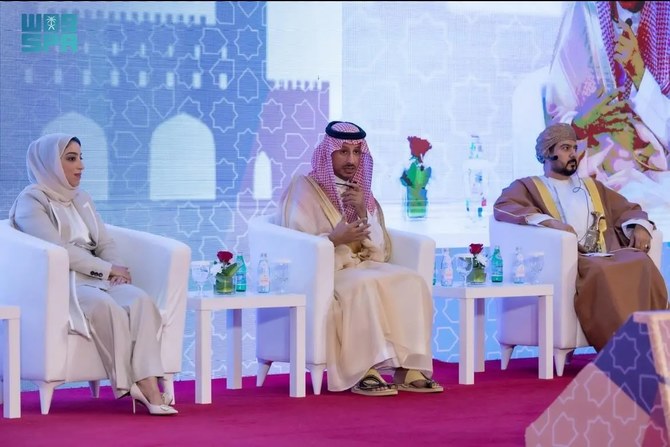
RIYADH: Saudi Arabia is on track to change the map of tourism on a global level, according to a top minister.
Participating in a dialogue session on the sidelines of the 50th UN Tourism Regional Commission for the Middle East taking place from May 22 to 24 in Muscat, Saudi Tourism Minister Ahmed Al-Khateeb stressed that the Kingdom is working in cooperation with regional member states of the organization to further develop the industry, according to the Saudi Press Agency.
This is in line with Saudi Arabia’s National Tourism Strategy, which aims to reach 150 million visitors by 2030, grow the private sector’s contribution, and attract direct foreign investments, adding to the economic growth and diversification.
“The Kingdom will change the map of tourism in the world, and the opportunities and facilities that we provide to investors will make the tourism sector more attractive, and we are proceeding in a distinctive way in building the sector,” Al-Khateeb affirmed.
During the session, the minister also indicated that Saudi Arabia has begun to develop the tourism division as part of its Vision 2030 plan, noting that the development efforts have succeeded in raising the sector’s contribution from 3 percent of the local economy to 4.5 percent by the end of the last year.
Al-Khateeb also drew attention to the fact that the Middle East has great potential and natural resources that enable it to become one of the most important tourist destinations in the world.
He explained that the countries in the region are moving as a single bloc in the right direction regarding developing the tourism sector, as they have begun designing plans and strategies to benefit from this promising industry.
The minister highlighted that attracting and qualifying the national human resources are two important factors for developing the regional sector, stressing that the Saudi Ministry of Tourism pays great attention to the issue of qualifying national cadres working in the field.
The body also works to attract young men and women in the Kingdom to work in the industry.
In April, the deputy minister of destination enablement at the Ministry of Tourism said that Saudi Arabia is open to readjusting its goal of attracting 150 million visitors by 2030 if those numbers are achieved ahead of time.
Speaking in an interview with Arab News on the sidelines of the first day of the Future Hospitality Summit in Riyadh, Mahmoud Abdulhadi explained that goals are adjusted based on performance.
“As we hit our target seven years ahead of target, our 100 million target, we therefore now have a new goal. I’m sure if we were to hit that new target with a significant overperformance in terms of the timeline, our targets would also be adjusted,” Abdulhadi said.
Brazil scheduled to host FII Priority Summit in June
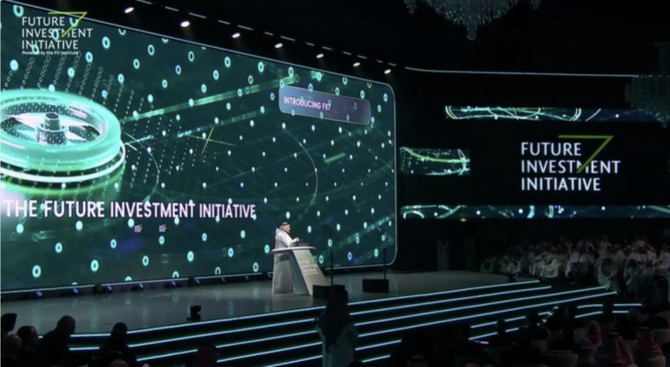
RIYADH: The Future Investment Initiative Institute has expanded its reach by unveiling its inaugural Latin American FII Priority Summit scheduled to take place in Brazil.
The event under the theme “Invest in Dignity” will take place from June 11 to 13 at the Copacabana Palace in Rio de Janeiro, the Saudi Press Agency reported.
The Rio summit will explore how investing in renewable energy, artificial intelligence, entrepreneurship, and social impact can put people, respect, and dignity at the heart of policymaking.
Moreover, discussions will touch on ensuring that all citizens’ dignity is protected and prioritized, suggesting that this should be a goal for all economic decision-makers.
As per SPA, FII Institute chief executive and board member Richard Attias said the focus will be on responsible investment and economic growth decision-making.
“This summit marks a pivotal moment in shaping a sustainable and technologically advanced future for all,” said Attias.
The FII Priority program is an annual series of summits, reports, and initiatives designed to tackle the world’s biggest challenges and concerns.
On the other hand, Saudi Arabia reaffirms its role as a global hub for discussions on a prosperous future as the FII Institute unveiled the theme “Infinite Horizons: Investing Today, Shaping Tomorrow” for its eighth annual FII conference, scheduled to take place from Oct. 29 to 31 at Riyadh’s King Abdulaziz International Conference Centre.
With this theme, the event will ignite talks on how investment can serve as a catalyst for a prosperous and sustainable future, pushing the boundaries of what is possible for humanity.
The discussions at the conference will be data-driven, ensuring that insights are based on facts and actionable strategies, SPA reported.
Attias emphasized the significance of the theme, highlighting that it is a loud call “to expand our collective vision and embrace the limitless prospects of the future.”
He added: “It embodies our commitment to driving conversations that lead to a future where investment knows no bounds and works towards a better tomorrow for all.”
FII8, organized by the FII Institute and founded by Saudi Arabia’s Public Investment Fund, will adopt an innovative format as an exclusive week for FII Institute members, invited delegates, and strategic partners.


